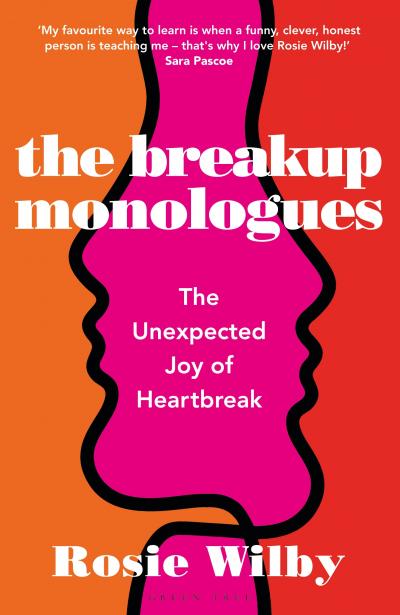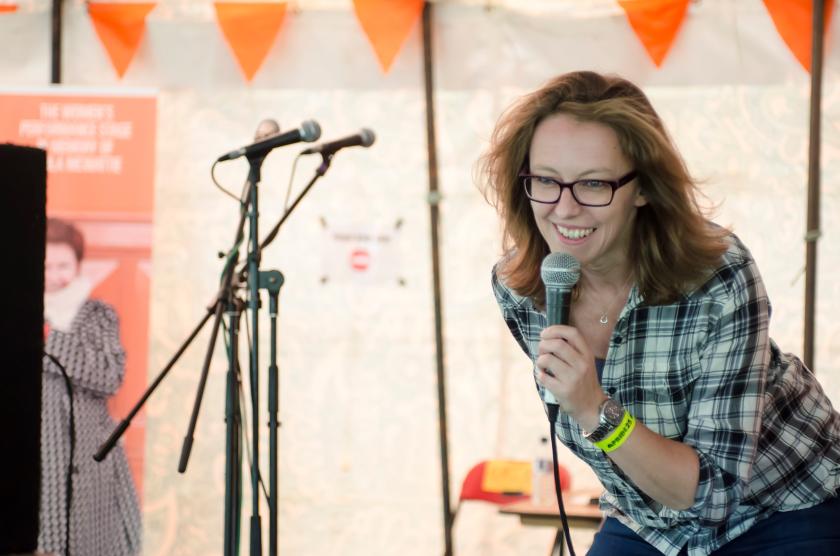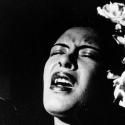According to Rosie Wilby, “breaking up and staying together are simply two sides of the same coin. They are a flick of a switch apart, separated only by one fleeting moment of madness, or perhaps clarity.” Wilby’s book The Breakup Monologues: The Unexpected Joy of Heartbreak takes the view that breakups make us stronger, better people, and this collection charts the end – arguably for the better – of several of her relationships and those of her social circle. As she says, “breakups have been the biggest learning experiences I have had.”
Wilby is a comedian and writer based in south London. This book follows Is Monogamy Dead? (2017) and is inspired by her podcast of the same name. It’s a motley collection of personal anecdotes and psychological wisdom centring on the nature of relationships and breakups, particularly from her perspective as a gay woman. It’s unusual for a book of this genre not to be told from a heteronormative perspective, so the focus on lesbian relationships is particularly refreshing. Arguing that “the structures of commitment, marriage and monogamy within which we conduct our romantic relationships have all been forged in the heteronormative, patriarchal interest”, Wilby provides advice that is applicable to all relationships through the primary prism of a gay relationship, which makes a welcome change from the exemplification of heterosexual partnerships as the norm.
 In this sense, the book is undeniably honest. A recounting of Wilby’s first date in Brixton’s Brockwell Park with her current girlfriend is sensitive and tasteful, using natural dialogue to give a genuine impression of the warm feeling of a good first romantic encounter without any cringeworthy slang. Her comments on the lexicon of modern dating are funny: “Curving”, whatever that is, apparently “sits somewhere between breadcrumbing and ghosting… Toasting, maybe???” And her references to not feeling in control of your own identity in a relationship, or necessarily able to be your most productive self without some space of your own, are particularly poignant.
In this sense, the book is undeniably honest. A recounting of Wilby’s first date in Brixton’s Brockwell Park with her current girlfriend is sensitive and tasteful, using natural dialogue to give a genuine impression of the warm feeling of a good first romantic encounter without any cringeworthy slang. Her comments on the lexicon of modern dating are funny: “Curving”, whatever that is, apparently “sits somewhere between breadcrumbing and ghosting… Toasting, maybe???” And her references to not feeling in control of your own identity in a relationship, or necessarily able to be your most productive self without some space of your own, are particularly poignant.
Other parts of the book invite a squirm, such as the use of pet names like “baby” or the references to past lovers by awkward proper nouns: “Secretive Ex-Girlfriend” or “Boozy Ex-Girlfriend”. Even Wilby’s current partner is referred to merely as “Girlfriend” throughout. Though this retains anonymity and conveys the fixed yet mysterious status of the other in a relationship with the self, it also gives the book a slightly artificial ring, one corroborated by clumsy comments in the unwieldy footnotes, such as “How meta is that?!”. The term “A.G.” for “After Girlfriend” also doesn’t quite work, suggesting that Wilby has broken up with “Girlfriend”, though in fact they are together throughout the book. Inept moments like this jar against the more affecting revelations about relationships and their cracks.
Structurally, The Breakup Monologues can also feel contrived at points; the structure is quite haphazard, meaning links between chapters appear synthetic. A section will close with the mention of a relaxing holiday, and then the next chapter will, unsurprisingly, be about that holiday – it’s a “dot, dot, dot” effect which doesn’t quite land. Equally awkward is the segue between caring for pets and the idea of wanting or not wanting children. That said, the book is clearly meant to be a ramshackle collection of thoughts and experiences, so perhaps a looser structure following Wilby’s various trains of thought better fits her style as a stand-up comedian. Nevertheless, one might have expected a tighter set from her.
Wilby is not saying anything we don’t know about breakups, and her style is a bit gauche. But her fresh perspective, quirky Generation X insights and moments of pertinent insight carry The Breakup Monologues. And she is undeniably right in her thesis that, “Without all of my bad breakups… I wouldn’t be in a position to know what I do want.” Breakups are learning experiences, and endings don’t always have to be bad.
- The Breakup Monologues: The Unexpected Joy of Heartbreak by Rosie Wilby (Bloomsbury, £16.99)
- Read more book reviews on theartsdesk














Add comment